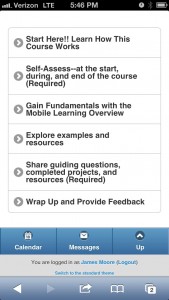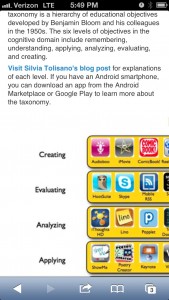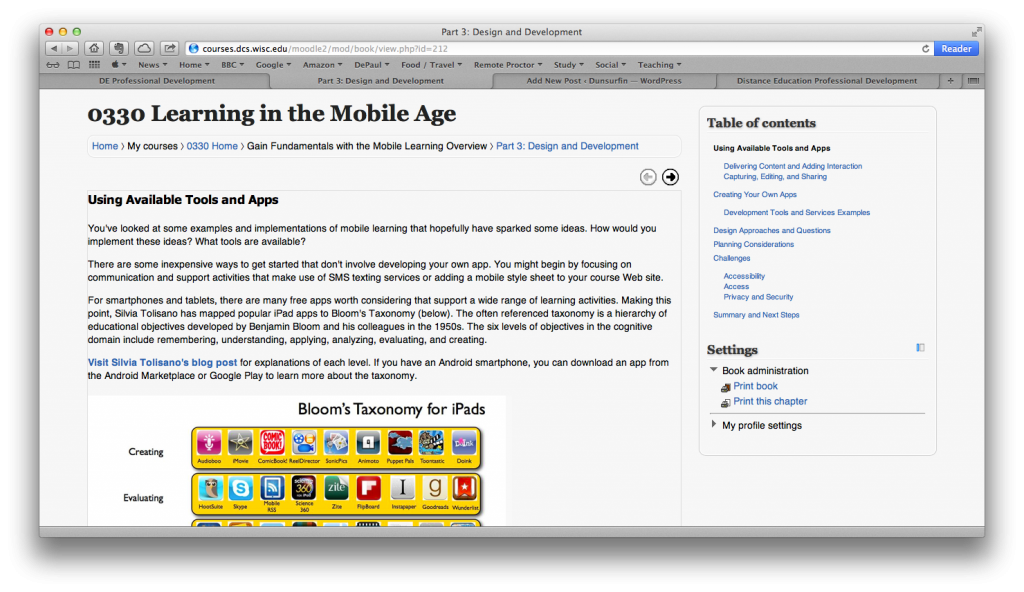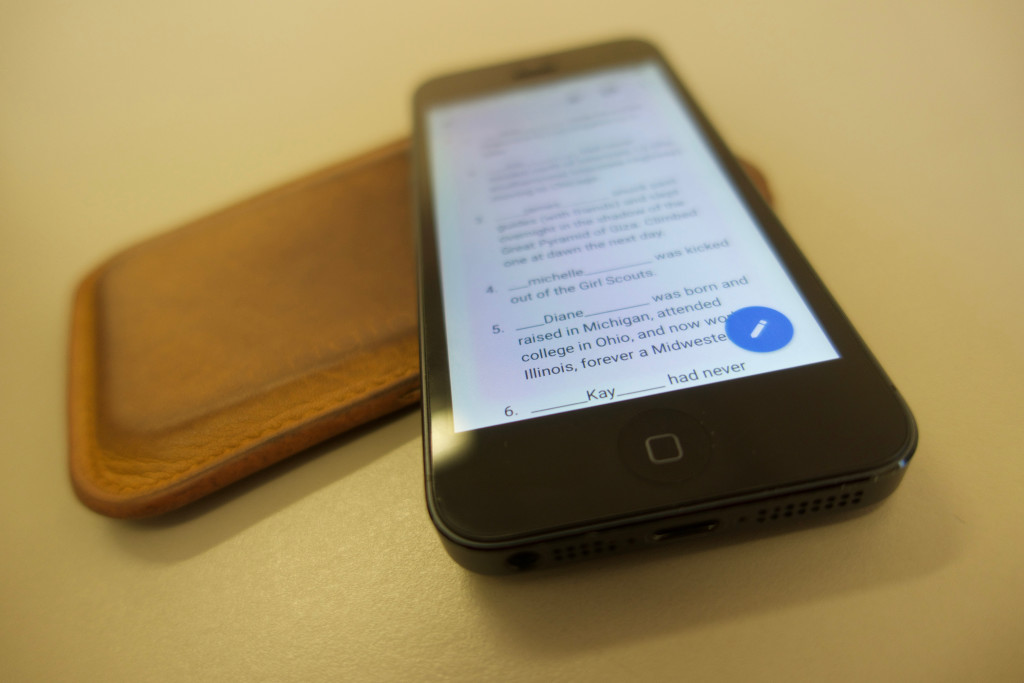I an currently taking an online course (DEPD 0330 Learning in the Mobile Age) via the University of Wisconsin-Madison Distance Education Professional Development Program, and this is my time to reflect.

Moodle Course on iPhone
I have consciously attempted to study on a plethora of mobile devices (iPhone 5, iPad 3, Nokia N900, and Apple MacBook Air). The experience has been pleasant, and I have been impressed by how well the Moodle site has rendered on mobile devices. In some ways the navigational process has been more pleasant on an iPhone, where much of the structure has been abstracted. The only times I have wanted to return to using a laptop (which is still a mobile device) have been where images were difficult to view on the phone, or now, when I needed to type something up that was more than a few paragraphs in length.

Larger Images Did Not Work So Well On A Mobile Device
The resources that have been particularly useful to me in this course were in Part 3 (Design and Development), where a list of applications and ideas were listed for mobile student activity. Some of these I was already using, but others will be explored. These resources will be used in the classes I teach, and shared with my colleagues at work.

Part 3: Design and Development
I liked how various “chapters” of the courses could be collated and printed as a PDF. This will allow me to explore these resources after the course had finished, but my ideal situation would have been to save everything as an ebook (epub or ibook).
The course has introduced the concept of a guiding question, defined here as:
“A guiding question is the fundamental query that directs the search for understanding.” (Traver, 1998, p. 70)
My guiding question is one I have pondered for a while – how should one communicate with online students? Essentially I am looking for the ideal delivery platform for instructional materials that lasts beyond the course. A Learning Management System is a powerful platform, but once a course is over students no longer have access to the contents. Communicating over the Internet is efficient and extensible, but students do not always have continuous access to the Internet. I need something that works beyond these limitations.
I think my guiding question is still relevant based upon the ideas and material I have encountered in the course. In some ways this has become more relevant, as during the course I experienced times in which I wanted to study but did not have Internet access. An ideal platform for study would have (perhaps) been something analogous to a service like EverNote, which provides a local copy of resources on digital device, but syncs when connected to the Internet.
The guiding question will continue beyond the life of the course, but the course has introduced new tools and perspectives that will help me approach a workable solution to the problem.




